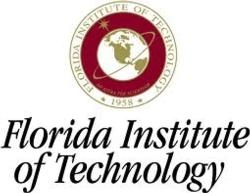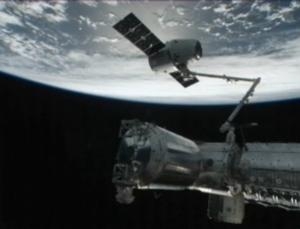Thu, Feb 21, 2013
Proposal Would Seek To Better Understand Alzheimer's Disease
Florida Institute of Technology researchers have won a prestigious grant enabling their biology experiment to travel on a flight to the International Space Station (ISS). Their proposal, "Self-Assembly in Biology and the Origin of Life (SABOL): A Study into Alzheimer's," was just one of eight proposals chosen by Space Florida and NanoRacks, LLC, in the ISS Research Competition. For the International Space Station experiment, the winners receive payload transportation to the ISS via an upcoming SpaceX Falcon 9 rocket launch from Cape Canaveral Air Force Station. Launch is currently slated for September 2013.

Florida Tech faculty researchers are former astronaut Sam Durrance, professor of physics and space sciences; and College of Engineering faculty members Daniel Kirk and Hector Gutierrez. They will work with about 30 science and engineering students to design and develop the payload and analyze the data. "We seek to gain an improved understanding of the origin of life on our planet and of Alzheimer's disease, and provide an opportunity to apply this new understanding for the betterment of humanity," said Durrance.
Durrance leads the biological science experiment, which will investigate the spontaneous assembly of amyloid proteins into long linear fibers. Postmortem studies of neurons taken from Alzheimer's disease victims show accumulated linear amyloid fibers composed of either Tau proteins or amyloid-beta peptides. Both can self-organize in solution through colloidal interactions.
However, the mechanisms of amyloid fiber assembly are difficult to study on Earth because the protein fibers settle, which prevents further growth. In weightlessness they should stay suspended and continue growing with multiple fibers wrapping around each other into helical fiber bundles. Analyzing these fiber bundles should improve the understanding of the internal structure of the amyloid fibers. The researchers believe that understanding the colloidal chemistry and biochemistry of amyloid fiber formation should lead to strategies for controlling the process.

The experiment will include about nine different incubation periods from one to 30 days during orbit operations. When the buffer solution and protein powder are mixed and the temperature is set, it takes about a day to agglomerate into protein spheres, a few days to form fibers and a week or more to become tangling fibers, which in 30 days on Earth, would settle.
The experiment, to be contained in a payload unit called a NanoLab Module—a four-inch cube—can be manipulated and monitored from Florida Tech laboratories while in flight.
(NASA image Dragon at ISS)
More News
Aero Linx: International Business Aviation Council Ltd IBAC promotes the growth of business aviation, benefiting all sectors of the industry and all regions of the world. As a non->[...]
"During the annual inspection of the B-24 “Diamond Lil” this off-season, we made the determination that 'Lil' needs some new feathers. Due to weathering, the cloth-cove>[...]
Also: Bushcat Woes, Hummingbird 300 SL 4-Seat Heli Kit, Carbon Cub UL The newest Junkers is a faithful recreation that mates a 7-cylinder Verner radial engine to the airframe offer>[...]
Also: Seaplane Pilots Association, Rotax 916’s First Year, Gene Conrad After a decade and a half of struggling with the FAA and other aero-politics, G100UL is in production a>[...]
Also: Martha King Scholarship, Montaer Grows, Textron Updates Pistons, FlySto The FAA is hiring thousands of air traffic controllers, but the window to apply will only be open for >[...]
 ANN's Daily Aero-Linx (04.16.24)
ANN's Daily Aero-Linx (04.16.24) Aero-News: Quote of the Day (04.16.24)
Aero-News: Quote of the Day (04.16.24) Airborne 04.10.24: SnF24!, A50 Heritage Reveal, HeliCycle!, Montaer MC-01
Airborne 04.10.24: SnF24!, A50 Heritage Reveal, HeliCycle!, Montaer MC-01 Airborne 04.12.24: SnF24!, G100UL Is Here, Holy Micro, Plane Tags
Airborne 04.12.24: SnF24!, G100UL Is Here, Holy Micro, Plane Tags Airborne-Flight Training 04.17.24: Feds Need Controllers, Spirit Delay, Redbird
Airborne-Flight Training 04.17.24: Feds Need Controllers, Spirit Delay, Redbird




